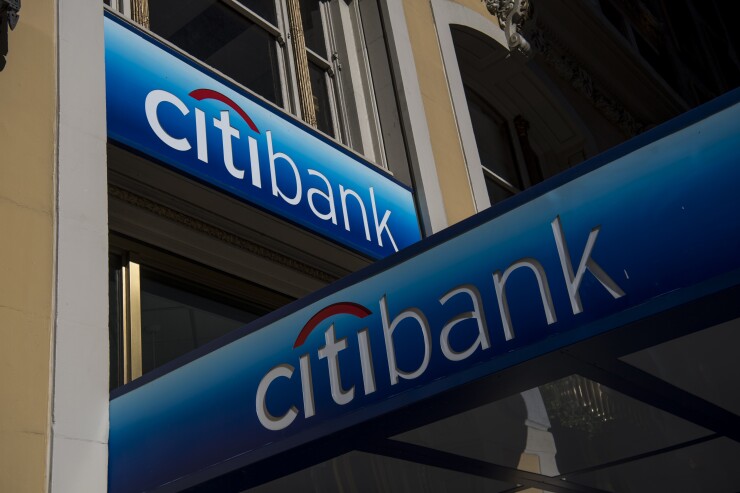Want unlimited access to top ideas and insights?
Citigroup expects to take a noncash charge to earnings of about $20 billion if the Senate's version of the tax reform bill is enacted, Chief Financial Officer John Gerspach said.
The hit to profit would mostly stem from the bank writing down its deferred tax assets in the period the bill is signed, Gerspach said Wednesday at an investor conference in New York. About $3 billion to $4 billion of the charge would come from the taxation of unremitted foreign earnings.
"From what we understand in that tax bill, our best estimate would be in the year that bill gets signed we would probably have an upfront hit of $20 billion," Gerspach said.

The bank said at its July investor day that the charge could be $15 billion, a number that assumed a 25 percent corporate rate and a one-time repatriation of overseas earnings. JPMorgan Chase said Tuesday it expects a charge of as much as $2 billion, largely driven by foreign earnings facing taxation.
The lower tax rate means many banks will have to write down deferred tax assets, which pile up when a company loses money and can't immediately enjoy the tax benefits of those losses. Lower taxes will allow for higher earnings in the long run, but a one-time hit to earnings can make for a bruising quarter — and even year — for a lender's results.
Much of the DTAs are excluded from counting as regulatory capital, so the writedowns won't have a large impact on those ratios. Gerspach said the reduction to regulatory capital would be about $4 billion and that means the amount it has planned to return to shareholders through dividends and stock buybacks over the coming years won't change.
Still, it's a larger reduction to regulatory capital than the bank's illustration in July, which had assumed a $2 billion cut.
Citigroup had $43.2 billion in U.S. deferred tax assets as of Sept. 30, according to a regulatory filing. Much of that total was accumulated during the financial crisis, when the bank had to accept a government bailout.
Citigroup shares extended their decline after Gerspach's comments and closed down 1.4 percent, the biggest drop in a month.





